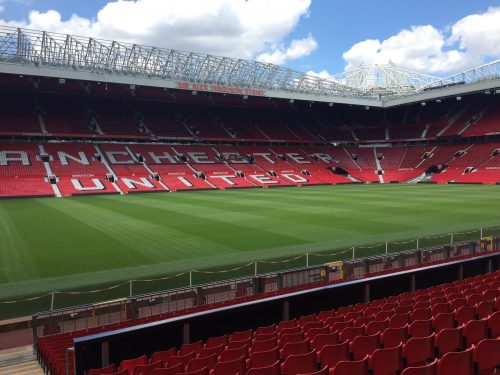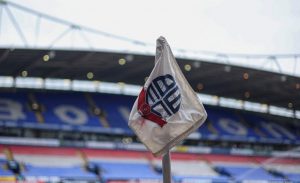Losses deepen and revenues tumble at Manchester United

Losses and lower revenues have hit Manchester United’s half year results, the Old Trafford club revealed today.
The figures also show that United paid former manager, Erik ten Hag and his team, and former sporting director Dan Ashworth, a total of £14.5m when they were dismissed last October, and replaced by current first team boss, Rúben Amorim.
Reporting figures for the six months to December 31, 2024, the club announced total revenues of £341.8m, down from £382.9m the previous year, a 10.7% decline.
Pre-tax losses for the period increased, from £5.585m a year ago to £32.889m in the most recent interim period.
Adjusted EBITDA (earnings before interest, tax, depreciation and amortisation) was £94.2m, down from £114.7m a year ago.
The club is currently languishing at 15th in the Premier League.
As well as rebuilding on the field, it is also wrestling with whether to rebuild the current Old Trafford stadium, or build a new ground, which has been priced at close to £3bn.
CEO, Omar Berrada, said: “We recognise the challenges in improving our men’s team’s league position and we are all working hard, collectively, to achieve that.
“At the same time, we are pleased to have progressed to the knock-out phase of the UEFA Europa League and the fifth Round of the FA Cup.
“Meanwhile, our women’s team is currently placed second in the Women’s Super League, and has reached the Quarter Finals of the FA Cup.”
He added: “Our redevelopment of the Carrington Training Complex remains on track. We continue to work towards a decision on the future of Old Trafford as part of a wider regeneration programme, which has now attracted UK Government support. This follows the work of the Old Trafford Regeneration Task Force in demonstrating the significant economic potential of a revitalised area around a future stadium project.”
For the full fiscal year 2025, the company reiterates its previous revenue guidance of £650m to £670m and now expects adjusted EBITDA guidance to be at the high end of its previously issued range of £145m to £160m.
The club said it remains committed to, and in compliance with, both the Premier League’s Profit and Sustainability Rules and UEFA’s Financial Fair Play Regulations.
Since minority shareholder, Sir Jim Ratcliffe, came on board last February, he has been conducting a review of playing and financial structures at the club, which led to the axing of around 250 jobs and the ending of former manager Sir Alex Ferguson’s £2m-a-year ambassadorial role.
These cuts resulted in an £8.6m exceptional cost to the business.
New reports claim the club is expected to announce a further 200 redundancies in the coming weeks, while the Guardian says Ratcliffe wants to dramatically slash its 80-strong worldwide scouting network as part of austerity measures.
There is unease among club employees over the extent of cutbacks and reports in The Telegraph last week claimed an email has been sent to all staff warning them against leaking information.
Commercial revenues in the six months rose 5.1% to £170.4m, broadcasting revenues dropped by 36.2% to £92.9m due to the men’s first team participating in the UEFA Europa League compared with the UEFA Champions League in the prior year, while matchday revenues rose 4.7% to £78.5m driven by strong demand for matchday hospitality packages.
A benefit of playing in the Europa League was a reduction in salary payments to players, which saved the club £12.6m in the second quarter.
Net finance costs for the second quarter were £37.6m, compared with £300,000 in the prior year quarter, primarily due to an unfavourable swing in foreign exchange rates resulting in unrealised foreign exchange losses on unhedged US Dollar (USD) borrowings in the current year quarter, compared with a favourable swing in the prior year quarter.
United’s USD non-current borrowings as of December 31, 2024 were $650m, which was unchanged from December 31, 2023.
In addition to non-current borrowings, the group maintains a revolving credit facility which varies based on seasonal flow of funds. Current borrowings at December 31, 2024, were £215.7m compared with £266.8m at December 31, 2023. As of December 31, 2024, cash and cash equivalents were £95.5m compared with £62.8m at the prior year quarter.








